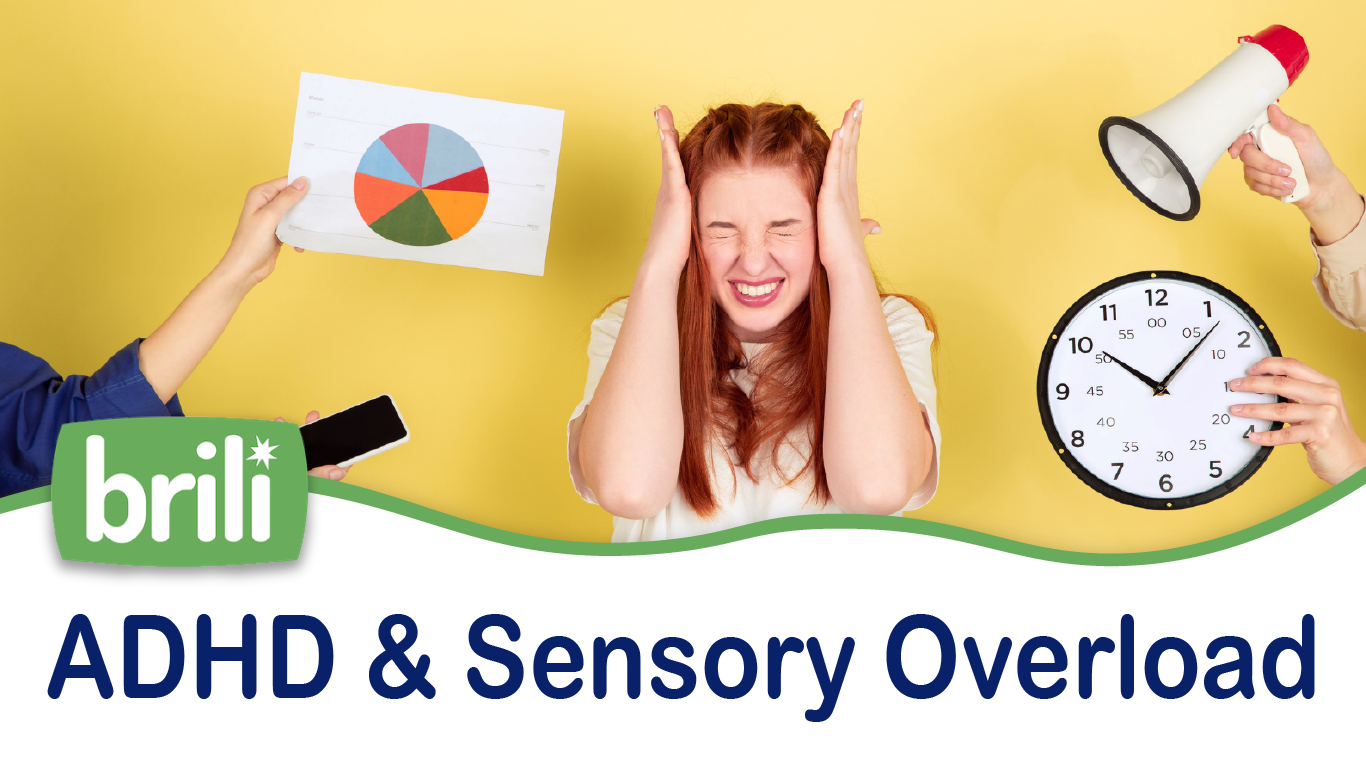Living with ADHD effects many aspects of life and one of them can be sensory overload. From looking for deals in busy stores to loud and lively households, there are countless situations where our senses can become overwhelmed in daily life.
Sensory overload occurs when something overstimulates one or more of your five senses, including touch, texture, smell, sight, sound, and taste. Everyone is different in terms of which senses are more sensitive.
It can be difficult to identify and prevent sensory overload because reactions exist on a spectrum from extreme overreaction and lashing out to under reacting and shutting down. Either way, how you react to it can have a negative impact on you and damage relationships. That is why it is important to know the symptoms and stay aware of your surroundings.
Here are some ways you can manage and address your sensory overload:
Set Your Environment: Follow your gut. Your home or living space should be set up optimally for your senses. If there is a light you know irritates you, a beeper that throws you off, or a blanket or carpet you hate the texture of, get rid of it and replace it with something that is more comfortable.
Pick Quieter Venues: For a date or night out with friends, opt for less crowded and more laid back locations. Crowded theaters or clubs can be a nightmare of sensory input.
Incorporate Self-Calming Techniques: On your more active days meditation, deep-breathing and yoga at any level can be very helpful for calming down, reducing stress, and promoting relaxation. Deep-breathing can be done anywhere, ask to grab some fresh air or head to your car for a quick break to reset.
Wind down with Brili's "Calming The Storm" Routine: Follow our done-for-you routine that helps to restore your inner balance whenever you feel overwhelmed. You can also adapt it to your needs and create your own coping mechanisms. Take advantage of the instant relief which such a tool in your belt can provide.
Know and trust yourself: If you sense you are starting to get irritable or agitated, are having difficulty concentrating on a conversation or task, don't blame yourself, but take notice of your surroundings and see if there is too much sensory input coming from your environment. If there is, take action to feel more comfortable instead of enduring it and hoping it will go away. It's okay to ask for a break or suggest to change location if possible.
You can try starting with small steps in the environments you spend the most time in and build your criteria for what works best for you. Using that criteria you can help your future self know where you can have the best time. Remember, everyone is unique in how they take in the world, and how environmental stimuli make them feel. Therefore, validating your yourself, learning to trust the signs and developing new coping mechanisms can be a great way forward.
Managing ADHD at work can be tricky at times which means that you should do all you can to create an environment that helps you structure your day-to-day work life in a way that is helpful. This might include clear task lists in which you set the large priority tasks that you're not going to enjoy as much as your first port of call and then reward yourself with tasks that you prefer doing after these. This often helps to keep you on track and maintain your momentum throughout the day.
It's also worth talking to your managers and business owners to see if they're able to do anything to support you, they may be able to look at certain aspects of office design for neurodivergence. For example, if you tend to experience a sensory overload while you're in the office, having a dedicated quiet area (if possible) in which everyone working there tends to be quieter and more focused can be helpful. Your company might be able to utilise meeting pods to do this or simple partitions within an open-plan office to help reduce noise pollution in that area. Most companies will want to help their employees stay productive and happy within their working environment so it's definitely something you should talk to them about.
